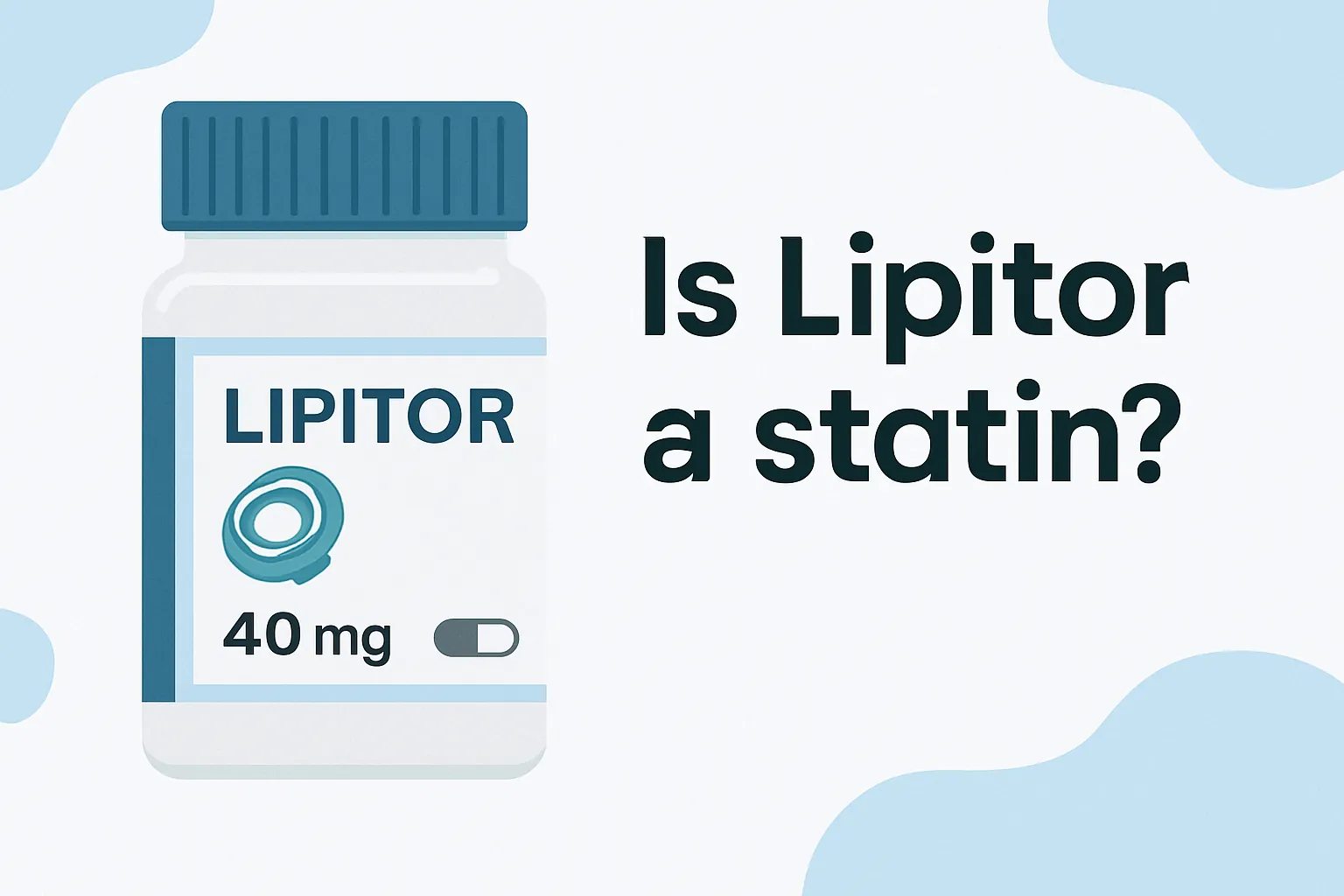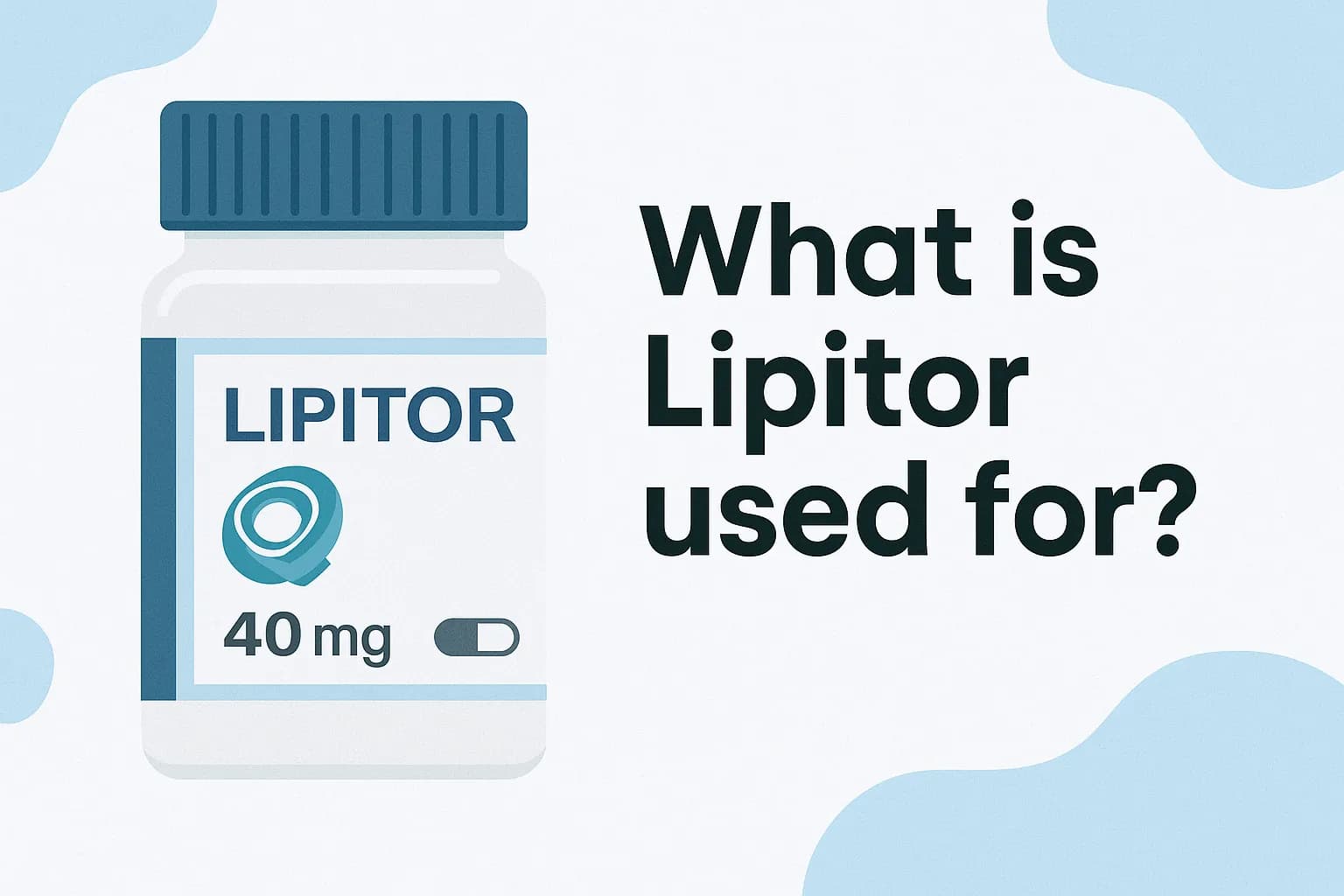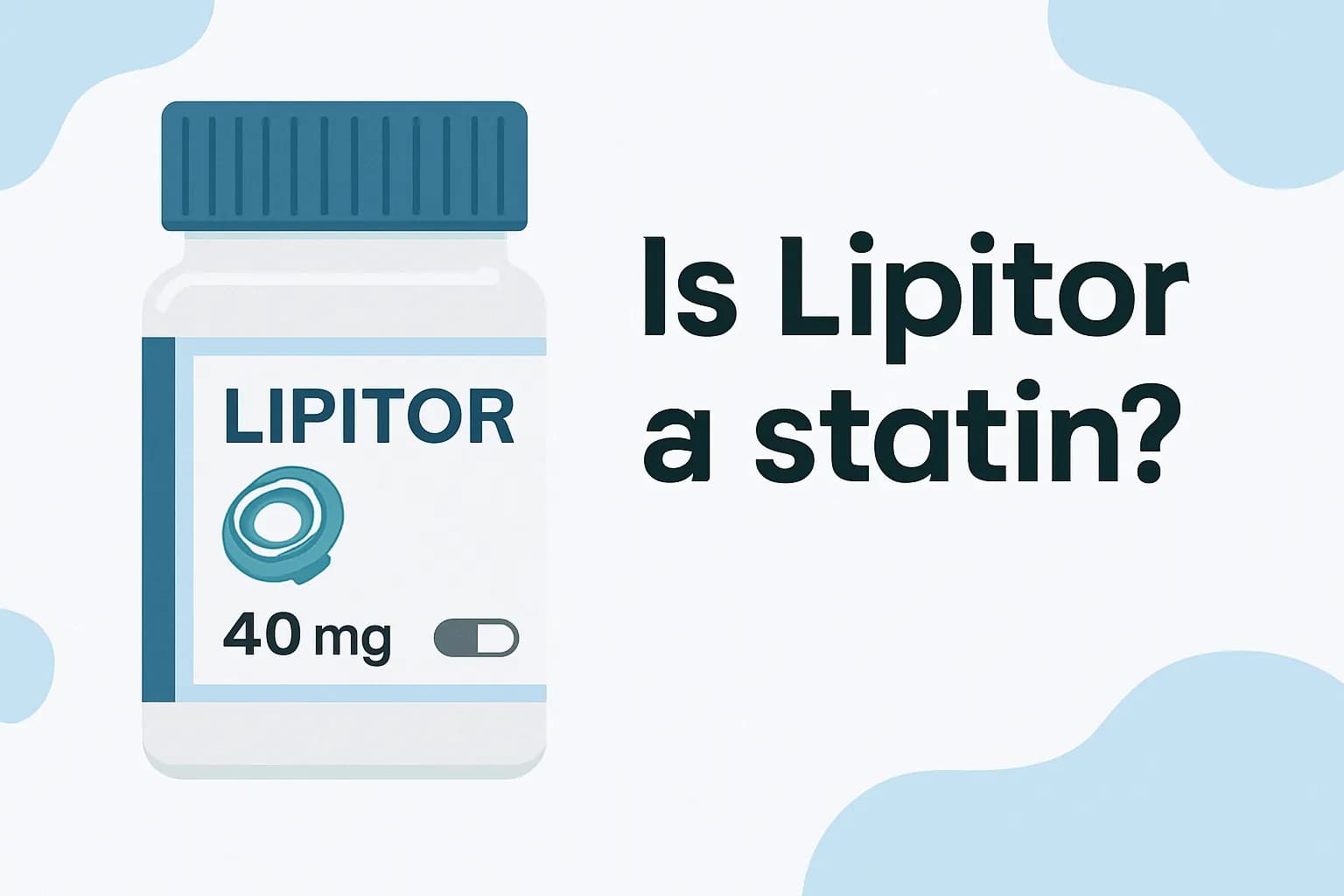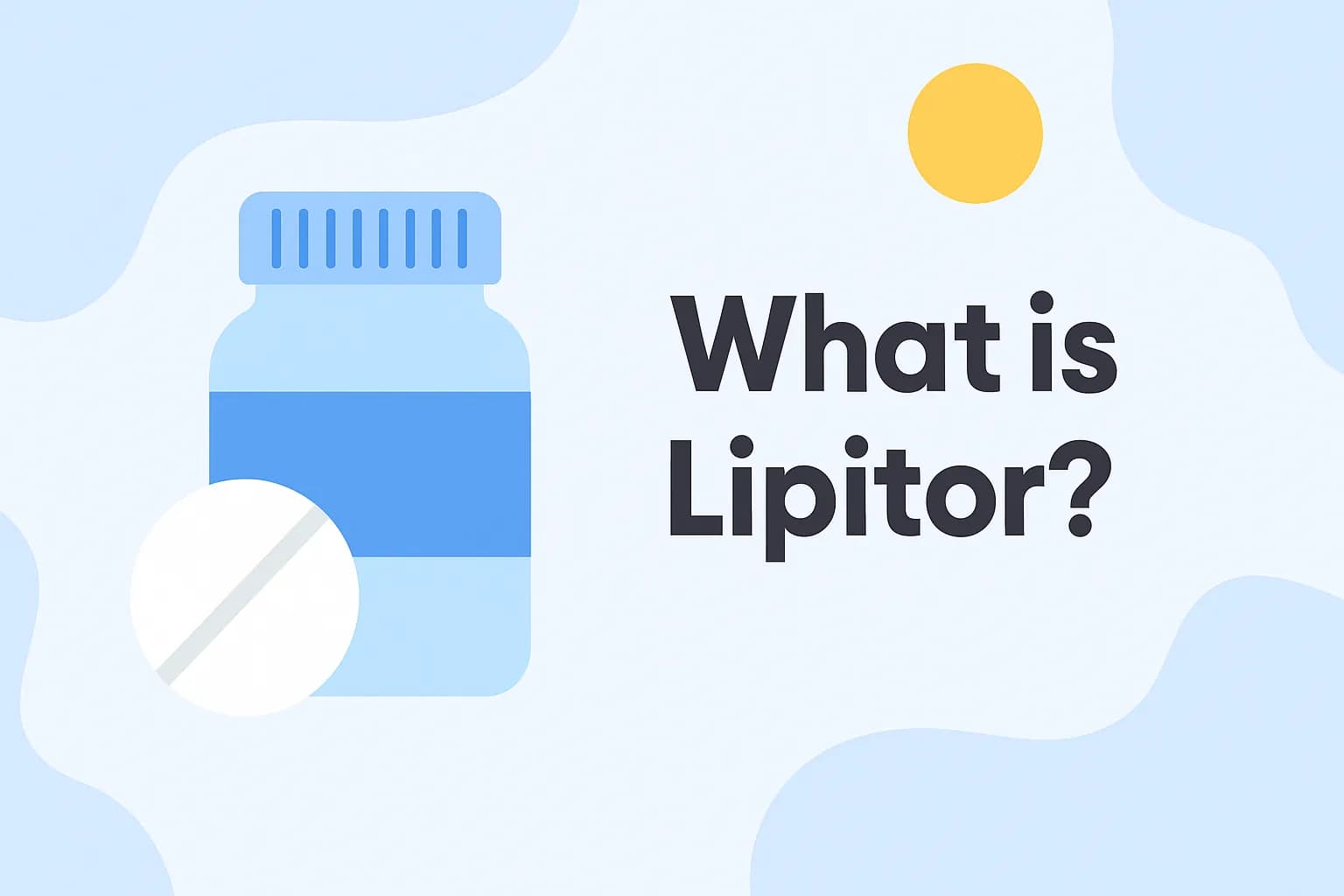Is Lipitor a statin?

Yes, if you have high cholesterol (hyperlipidemia), your healthcare provider may prescribe a statin such as Lipitor (atorvastatin). Statins, which are also known as HMG CoA reductase inhibitors, are a class of medications used to lower cholesterol. They were developed in the 1980s from compounds found in fungi and mold. Statins target a liver enzyme that regulates your body’s cholesterol production. Some statins can decrease your low-density lipoprotein (LDL) or bad cholesterol by 50% or more.
The first statin to be approved was lovastatin in 1987. Before lovastatin, cholesterol-lowering was limited to changes in diet, nicotinic acid, bile acid sequestrants such as colestipol and cholestyramine, and fibrates. However, these treatments were not very effective and not well tolerated. Lovastatin, on the other hand, was much more effective, well-tolerated, and only needed to be taken once or twice daily. Since 1987, several other statins have been approved, including Lipitor (atorvastatin), Zocor (simvastatin), Pravachol (pravastatin), Mevacor (lovastatin), Lescol XL (fluvastatin), Crestor (rosuvastatin), and Livalo (pitavastatin). Statins, today are one of the most prescribed medication classes in America, with Lipitor being the most popular. Since it went on sale in early 1997, Pfizer’s Lipitor has collected over $164 billion in sales through 2018.
While statins such as Lipitor are generally well tolerated, they can cause side effects. Statin use is associated with common side effects such as muscle pain, headache, nausea, diarrhea, and indigestion. Rarely, they can also cause liver damage, severe muscle pain, and damage, and also should not be taken if you are pregnant or breastfeeding.
In this article, we will discuss what Lipitor is used for, its side effects and drug interactions, and answer some frequently asked questions.
Lipitor FAQs
What is Lipitor used for?
- To reduce the risk of heart attack, stroke, chest pain, and certain types of heart surgery in adults who don’t have heart disease but have other risk factors for heart disease such as diabetes or high blood pressure.
- To reduce the risk of heart attack and stroke in adults with type 2 diabetes (T2DM) who do not have heart disease but have other risk factors for heart disease such as diabetes or high blood pressure.
- To reduce the risk of heart attack that does not cause death, stroke, certain types of heart surgery, hospitalization for congestive heart failure (CHF), and chest pain in adults with heart disease.
- Along with diet to lower low-density lipoprotein or LDL cholesterol (bad cholesterol) in adults. It is also used to treat adults and children 10 years of age and older with inherited conditions that can cause high LDL cholesterol levels (heterozygous and homozygous familial hypercholesterolemia).
- Along with diet for the treatment of adults with high triglyceride levels.
What is the most common side effect of Lipitor?
The most common side effects of Lipitor seen in clinical trials when compared to placebo include:
- Diarrhea (5-14%)
- Common cold symptoms (4-13%)
- Joint pain (4-12%)
- Urinary tract infection (4-8%)
- Pain in arms and legs (3-8%)
- Nausea (4-7%)
- Indigestion (3-6%)
- Insomnia (1-5%)
Some other possible side effects of Lipitor include:
- Muscle pain or weakness (myopathy)
- Constipation
- Memory loss or impairment, forgetfulness, and confusion
What serious side effects does Lipitor have?
Rarely, Lipitor may cause severe side effects such as:
- Serious, life-threatening allergic reactions, including anaphylaxis. Symptoms of anaphylaxis may include hives, skin rash, swelling of your face, lips, tongue, or throat, and shortness of breath.
- Severe muscle pain and damage (rhabdomyolysis)
- Increased risk of liver problems and liver failure
- Increased blood sugar levels
- Harm to unborn and breastfed babies
These are not all of the possible adverse events of Lipitor. Always seek medical advice from a healthcare professional for any questions or concerns about your medical condition or treatment.
Shop Medications
How does Lipitor work to lower cholesterol?
The active ingredient in Lipitor is atorvastatin calcium, which is considered an HMG-CoA reductase inhibitor (statin). It works by blocking the enzyme in your liver that produces cholesterol. This helps lower your bad cholesterol or low-density lipoprotein (LDL). It can also raise your good cholesterol or high-density lipoprotein (HDL) levels and lower your triglyceride levels. By lowering your bad cholesterol and increasing your good cholesterol, this can help reduce your risk of heart attack and stroke.
What should you tell your healthcare provider before taking Lipitor?
- Any unexplained muscle aches or weakness
- Liver disease
- Drinking more than 2 alcoholic beverages daily
- Diabetes
- Thyroid disease
- Kidney disease
- A previous stroke
- If you are pregnant or plan to become pregnant
- If you are breastfeeding or plan to breastfeed
Are there any drug interactions with Lipitor?
Tell your healthcare provider about all your current medications, including:
- Other cholesterol-lowering medications such as gemfibrozil, fenofibrate, and niacin
- Colchicine
- Antifungals or antibiotics such as rifampin, clarithromycin, erythromycin, ketoconazole, voriconazole, and itraconazole
- Birth control pills
- Immunosuppressants such as cyclosporine
- Antiviral medications for HIV or hepatitis C
Is Lipitor the same as atorvastatin?
Lipitor is the brand-name version of the generic medication atorvastatin calcium. A generic drug is an exact copy of the active drug in a brand-name medication. Lipitor and generic atorvastatin are both available as oral tablets in the same dosage and strength. They are used to treat the same conditions and have the same side effects and precautions.
Can lifestyle changes help lower your cholesterol while taking Lipitor?
Some lifestyle changes you can make to help lower your cholesterol include:
- Maintaining a healthy weight
- Regular exercise
- Eating a healthy diet
- Quitting smoking
- Limiting alcohol
How long does it take Lipitor to work?
Lipitor starts working as soon as you take your first dose. Most people have improvements in their cholesterol within 2 to 4 weeks. Your healthcare provider will monitor your cholesterol levels regularly.
Related Medications
- Zocor (simvastatin)
- Zetia (ezetimibe)
- Vytorin (ezetimibe/simvastatin)
- Crestor (rosuvastatin)
- Livalo (pitavastatin)
- Pravachol (pravastatin)
- Lescol XL (fluvastatin)
- Mevacor (lovastatin)





